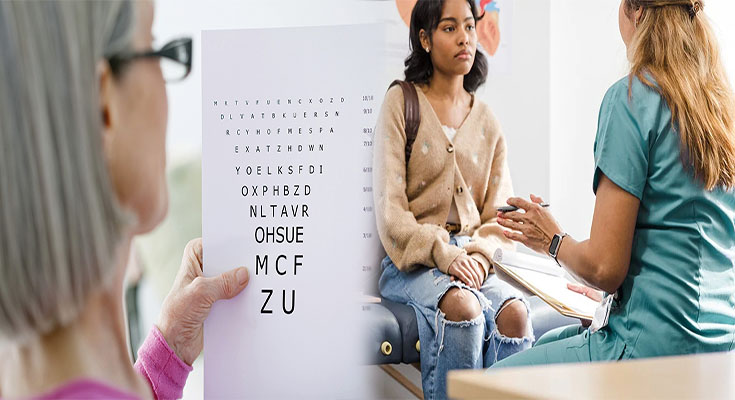Interstitial cystitis is a chronic bladder condition that causes pelvic pain, urinary urgency and frequency, and bladder spasms. If you have this condition, it can be challenging to feel like you’re getting the right treatment from your doctor. This quiz will help you decide if your symptoms could mean you have IC or another type of bladder disease. At the end of each section is a question about how often your symptoms occur. You will then see the percentage chance that these questions represent IC or another condition.
Do you have a bladder infection more than 5 times a year?
Do you have a bladder infection more than five times a year?
If the answer is yes, then you may have interstitial cystitis (IC). IC is a chronic condition that causes bladder pain and other symptoms. It’s not related to STDs or sexually transmitted infections (STIs). You can get an IC diagnosis by talking with your doctor about how often you experience symptoms like pain during urination, frequent urination and/or pressure in the pelvis area. If these are common for you, then it’s likely that your bladder is inflamed or irritated–a condition called urologic chronic pelvic pain syndrome (UCPPS).
Do you get pelvic or abdominal pain when your bladder is full or during urination?
The pain you experience with IC may be felt in the bladder, pelvis and lower abdomen. It can also be present when your bladder is full or during urination. If you have interstitial cystitis, you may experience pain with each urination attempt–even when there’s just a small amount of urine left in your bladder.
Pain from IC often worsens as the bladder fills up with urine; this is called “fullness” or “pressure” pain. As the bladder gets fuller and fuller over time (due to its increased size), it puts more pressure on surrounding tissues which causes them to swell up even more than normal (a condition known as hypertonicity). This leads us right into our next question…
Are there times when a small amount of urine leaks out after you think you’ve finished going to the bathroom?
If you have interstitial cystitis, there are times when a small amount of urine leaks out after you think you’ve finished going to the bathroom.
- This is different from having a full bladder. A full bladder is noticeable because it feels like pressure in your abdomen and causes discomfort when sitting down or standing up for long periods of time.
- How do you know if this is happening? If so, consider taking one of these steps: – Drink more water throughout the day
- Get up more often during the night to use the bathroom (if possible)
Is the feeling of urgency to go to the bathroom very strong at times, like right after a full meal or just before going to bed at night?
Urinary urgency refers to a sudden, compelling desire to pass urine. Urgency may be accompanied by the feeling that you have not completely emptied your bladder. Urinary urgency can be described as a sudden, compelling desire to pass urine that is difficult to defer. If you experience urinary urgency often and it interferes with your daily activities or sleep at night, then you may have interstitial cystitis (IC).
Do you feel like your bladder is always full, even when it’s not?
If you answer yes to the following questions, you may have interstitial cystitis (IC).
- Do you feel like your bladder is always full, even when it’s not?
- Is it difficult for you to urinate?
- Do you have pain in or around your pelvis area?
If so, then there’s a good chance that IC is causing these symptoms as well as others.
Does your body become irritated or inflamed sometimes without any clear cause?
If your body becomes irritated or inflamed sometimes without any clear cause, you may have interstitial cystitis.
Interstitial cystitis is a bladder condition that causes pain and inflammation in the urinary tract. It’s a common cause of chronic pelvic pain in women.
Interstitial cystitis symptoms include:
- Burning during urination (dysuria)
- Urinary frequency (having to go often)
- Urinary urgency (feeling like you need to go right now)
If you experience these symptoms along with other more common ones like abdominal pain or bloating, it can be difficult to tell if they’re related to IC or something else entirely. That’s why we created this quiz!
You may have Interstitial Cystitis (IC)
Interstitial Cystitis (IC) is a type of bladder pain that can be chronic. It has no known cause and is not contagious to others, but it does affect about one in every 200 people at some point in their lives. IC can be painful and have other symptoms like frequent urination, urgency (the feeling you need to go right now) and inflammation of your bladder.
If you have symptoms like these, see your doctor right away! Your doctor will diagnose IC by taking a medical history and doing tests such as blood tests or imaging studies such as ultrasound or CT scans that show how much fluid is in your body’s organs.
Treatment options include medications like anti-inflammatory drugs used for arthritis; alpha blockers used for high blood pressure; muscle relaxants used for anxiety disorders; antidepressants such as tricyclics which increase serotonin levels in brain cells; antispasmodics which relax muscles around spasms caused by irritable bowel syndrome (IBS). When these medications don’t work well enough alone then they may be combined with nitroglycerin patches applied directly onto the skin near where discomfort occurs most often–usually lower back area just below waistline level when sitting down.”
We hope this quiz has shed some light on your symptoms and helped you decide whether or not you should see a doctor. If you think that you have Interstitial Cystitis, don’t hesitate to make an appointment with one of our specialists here at [INSERT DOCTOR’S NAME]. They will be able to help determine if treatment is necessary or not!





